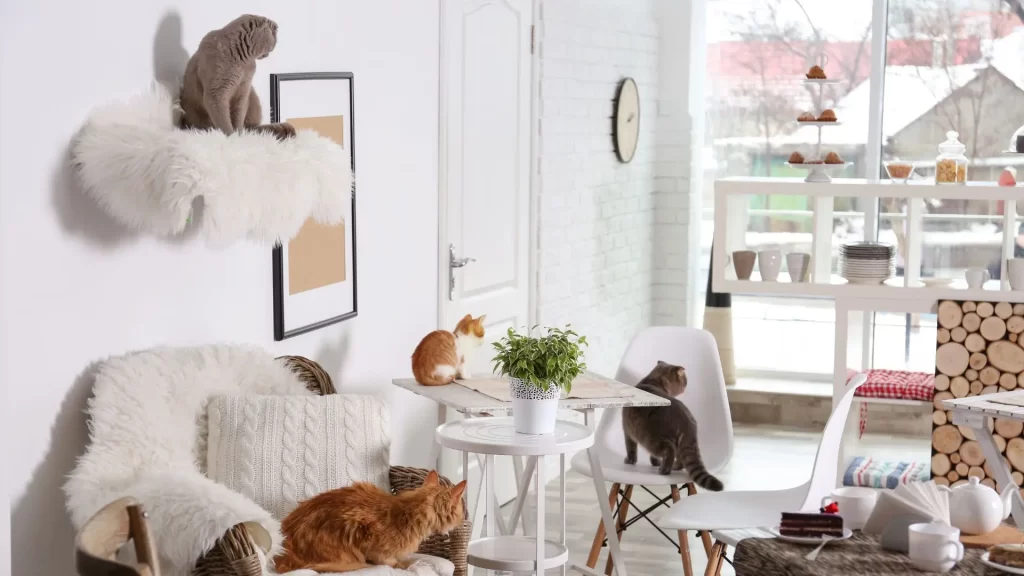Hey, it’s James Barrett back again with another deep dive into something pretty unexpected.
Could your furry friend be the secret to easing your tinnitus?

If you’re grappling with the constant buzz or ring of tinnitus, I’ve got a question that might pique your interest…
Do you have a pet at home, or have you considered getting one? I’m curious to hear your thoughts and experiences.
Drop your stories by replying to me.
Today, we’re exploring a less-talked-about aspect of ear health—how our animal companions might play a role in managing tinnitus symptoms.
Let’s get into it…
The Comforting Purr and the Calming Bark: Can Pets Actually Help Reduce Tinnitus?
Living with tinnitus can often feel like you’re stuck in an endless echo chamber, where the ringing just won’t quit. But what if the key to silencing that noise wasn’t found in a pharmacy, but rather, padding around on four paws at home?
The Science of Stress and Tinnitus
It’s no secret that stress can turn up the volume of tinnitus.
Interestingly, studies show that the simple act of petting a dog or cat can release oxytocin in the brain—the hormone responsible for reducing stress and increasing feelings of happiness and trust. By lowering stress, pets might indirectly quiet down the tinnitus too.
Plus, the connection to the animal reduces your heart rate, and your blood pressure decreases.
Some of my friends have shared how coming home to a wagging tail or hearing their cat’s purr creates a sense of normalcy and calm that helps them momentarily forget the ringing.
Whether it’s the distraction they provide or the unconditional love they offer, pets seem to soothe the symptoms.
Considering a Pet? Here’s What You Should Know…
If you’re considering adding a pet to your household to help manage your tinnitus, it’s essential to make a well-informed decision.
Pets can bring joy and comfort but require commitment and responsibility.
Here are some key factors to consider:
1. Lifestyle Compatibility
Activity Levels: Ensure the pet’s energy level matches your own. For
instance, if your tinnitus makes you sensitive to noise, a quieter, less active
pet might be preferable.

Space Requirements: Consider the amount of space a pet needs. Dogs
might need more room and regular walks, while cats are more suited to indoor
living.
2. Financial Commitment
Pets can be expensive. Beyond the initial adoption fees, consider ongoing costs such as food, grooming, veterinary visits, and potential emergencies. Make sure you’re financially prepared for the long-term care of your pet.
3. Time and Energy
Pets require time and attention. From daily feeding and exercise to playtime and training, ensure you have the time to devote to a pet’s physical and emotional well-being.
4. Allergies
Check for any allergies in your household. Pet dander can be a significant issue for some people, potentially worsening tinnitus symptoms if allergies contribute to sinus pressure or congestion.
5. Long-Term Commitment
Pets are a long-term commitment, often spanning several years or even decades. Consider your future plans and whether a pet fits into them, especially as your health and living circumstances evolve.
6. Type of Pet:
Research different types of pets to find one that best suits your lifestyle. Dogs and cats are popular, but other pets like birds, fish, or reptiles might be less demanding and equally comforting.
7. Trial Periods and Foster Care
If you’re unsure, consider fostering a pet temporarily. Many shelters offer programs that allow you to foster animals before making a permanent decision. This can be a great way to see how well a pet fits into your life without a full-time commitment.
8. Emotional Benefits
Evaluate the emotional benefits a pet could bring. The companionship of a pet can significantly reduce feelings of isolation or depression associated with chronic tinnitus.
9. Professional Advice
Consult with professionals such as veterinarians, pet trainers, or therapists who specialize in animal-assisted therapy. They can provide valuable insights into the best type of pet for your situation.
If owning a pet isn’t feasible, consider these alternatives to still enjoy animal interaction…
Visit Pet Cafés: Enjoy drinks in the company of friendly animals.

Volunteer at Animal Shelters: Spend time with animals while helping out.
Horseback Riding or Equine Therapy: Explore therapeutic benefits of horseback riding.
Foster a Pet Temporarily: Try pet care on a short-term basis.
Join Pet Therapy Programs: Participate in programs offered by hospitals or community centers.
By considering these factors, you can better determine if a pet is the right addition to your life. A pet could potentially provide a unique and valuable way to manage your tinnitus symptoms.
So, while more definitive research is needed, pets’ emotional and psychological support could be a valuable part of your strategy to manage tinnitus.




